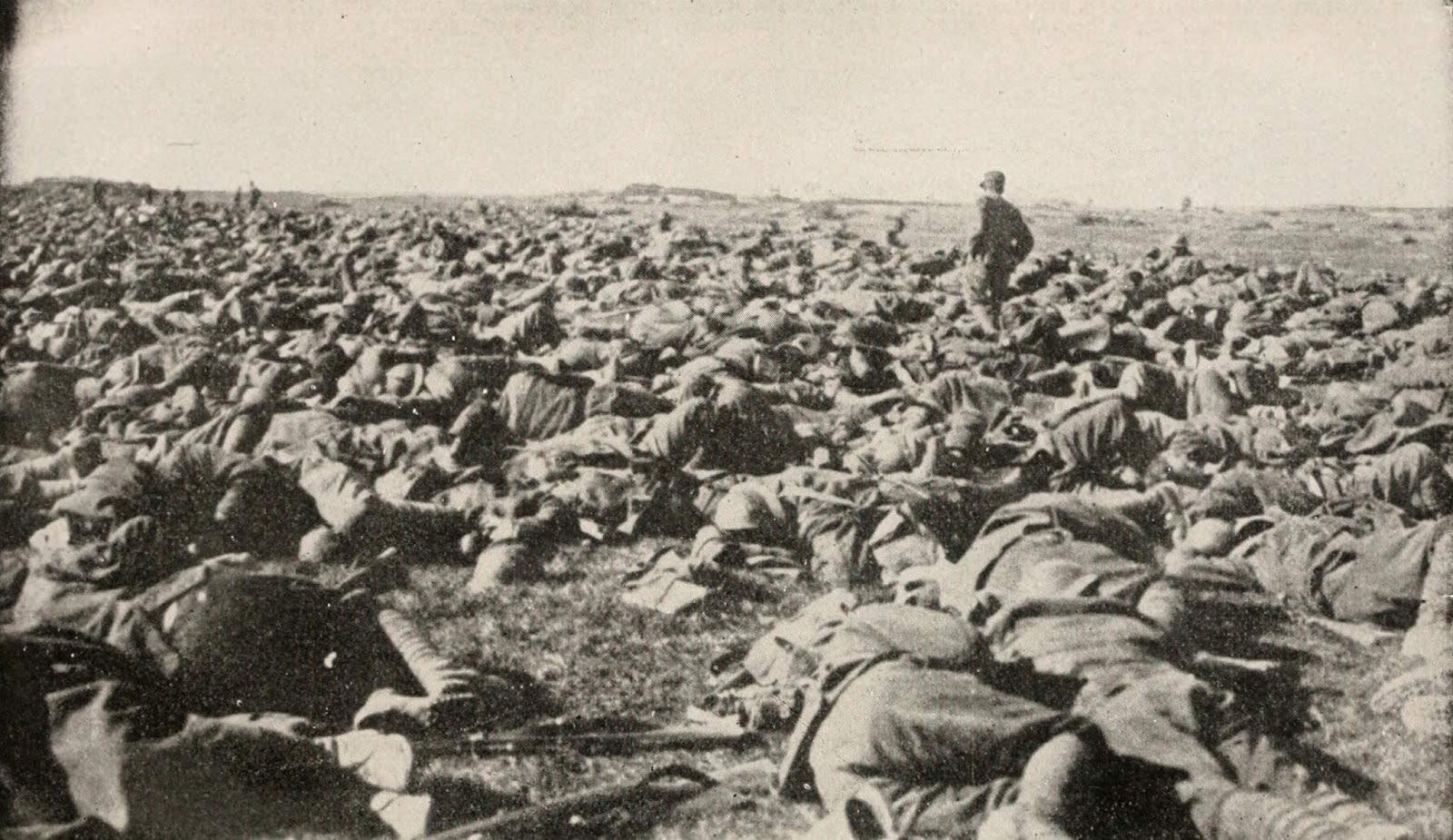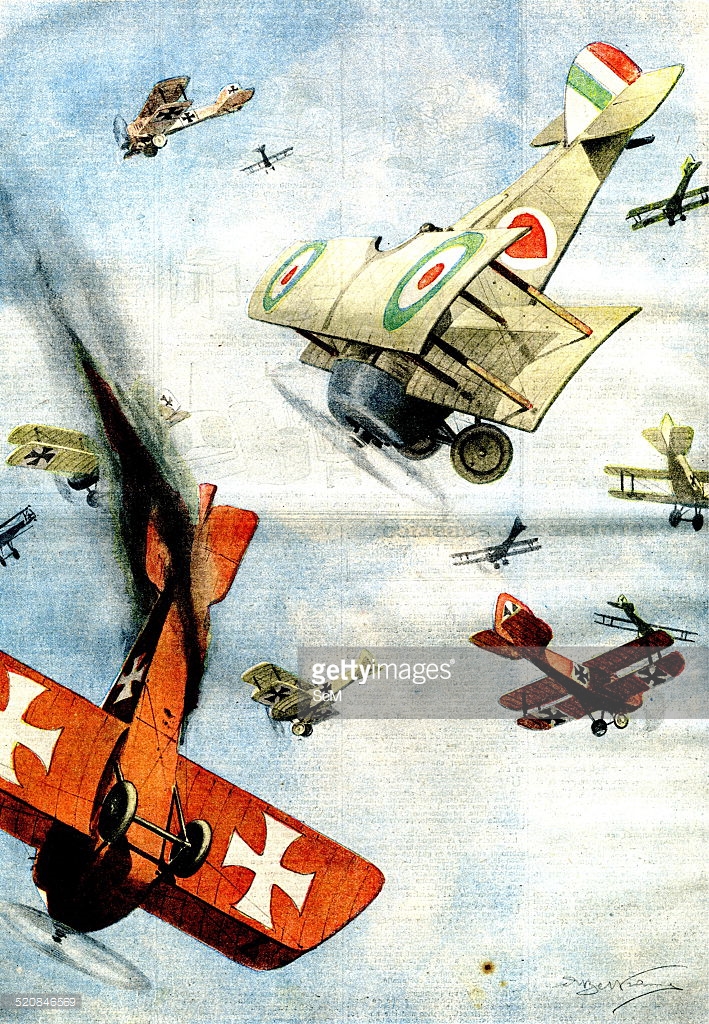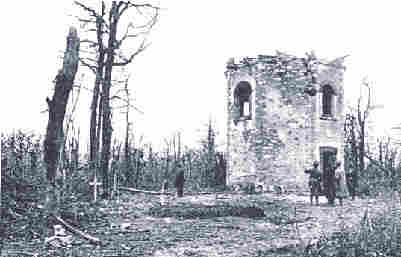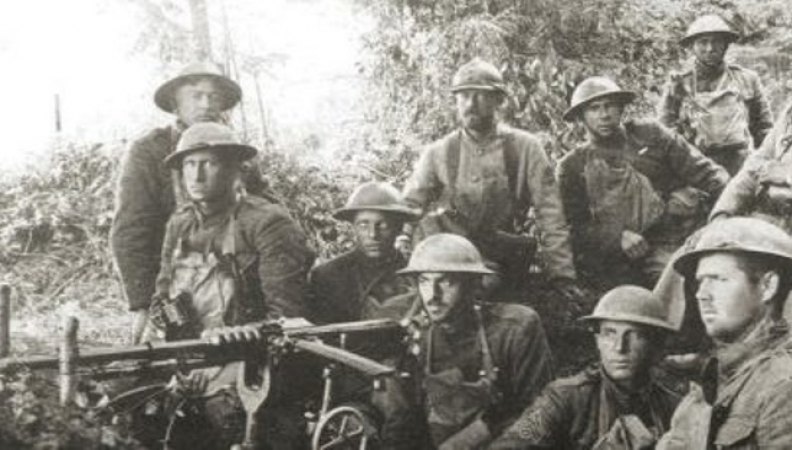Pershing to House: The Allies are Done For.
But Air Power Now Favoring the Allies
‘I Should Salute You’
Special to the Great War Project.
(2 July) Crucial developments in late June a century ago on the Italian Front, and still on the French front where the Americans are battling for Belleau Wood.
The Austrians gather near the battle fronts where Italy and Austria meet, the Italians on the Allied side, Austria with the Germans. Austrian leaders fully expect a grand victory.

Italian troops resting during battle for the Italian Front.
It does not come, and Austrian political leaders are shaken.
One great advantage for the Allies – superiority in the skies, reports historian Martin Gilbert. “More than six hundred Allied aircraft caused havoc to the Austrian forces.” The Allies take hundreds of prisoners.
On a single day, reports Gilbert, the Italians shoot down fourteen Austrian war planes. Only five days after they start their offensive, the Austrians begin a withdrawal.”

Artist rendering of air war on the Italian Front.
As for the Western Front, in late June the Americans are still battling the Germans at Belleau Wood. And the French are still begging General Pershing, the American commander, to share his units.
After four years of war the French and British are exhausted and need the Americans badly. Pershing recognizes “the draining effect,” writes historian Gilbert, “of their own many previous offensives as well as the German offensive that March,”
Pershing also knew that “the three million troops on the Western Front were facing three and a half million Germans.”
Pershing is blunt. “The Allies are done for,” he writes to President Wilson’s key adviser Colonel Edward House. “And the only thing that will hold them (especially France) in the war will be the assurance that we have enough force to assume the initiative.”
America’s task, Gilbert writes, “is to win the war in 1919.” Pershing argues that to assure an American victory then, the American army of 800,000 must be increased to three million.
In June 1918 a century ago, Pershing asks the War Department in Washington for an increase of nearly these proportions. In a telegram to Washington, he argues that this dramatic expansion of the American Expedition Forces must get to France by May 1919.
This he wrote, was “the least that should be thought of.”
“Those American troops who were already in action,” Gilbert reports, “were giving a remarkable account of themselves, new as they were to fighting. On June 26th at Belleau Wood the Marines who had refuse to withdraw three weeks earlier finally gained the wood.”

Aftermath of the battle for Belleau Wood.
“More than half of the 10,000 of the American Marine Brigade had been killed or wounded in the action.”
“In the war cemetery at the edge of the wood,” according to Gilbert, “are the graves 2,288 American soldiers and the names of a further 1,060 who have no known grave.”
Gilbert continues: “In another cemetery a few hundred yards away are 8,624 German graves.”
After the battle General Pershing visits a combat hospital where a gravely wounded soldier – his right arm has been amputated — struggles to salute the General.

Americans reinforce exhausted French troops at Belleau Wood, 1918.
“I cannot salute you,” the soldier says. “No,” Pershing replies. “It’s I that should salute you.”

This partly explains why my grandfather’s unit, the 332nd division, was sent to Italy after arriving in France in July 1918, to aid their defense against Austria. A very good book on this 332nd division, “American Lions” (2010) by Dallesandro and Dallesandro, provides many details. Separately, the following text is taken from the “official” summary of the 332nd division’s activity in WWI: “…the Italian Minister of War requested that General John J. Pershing send a battalion of American troops to the Italian Front, primarily to bolster the morale of the Italian Army and people, but also to serve as tangible proof of American-Italian cooperation for the war effort. Pershing agreed with the request and ordered the 83rd Division to be broken up, with the 332nd to go the Italian Front and the remaining units to serve as replacements. Pershing’s reasoning behind his decision was based on the fact that all other divisions in France at that time were either already at the front lines or were en route. On 25 July, the 332nd began the journey to Italy.”